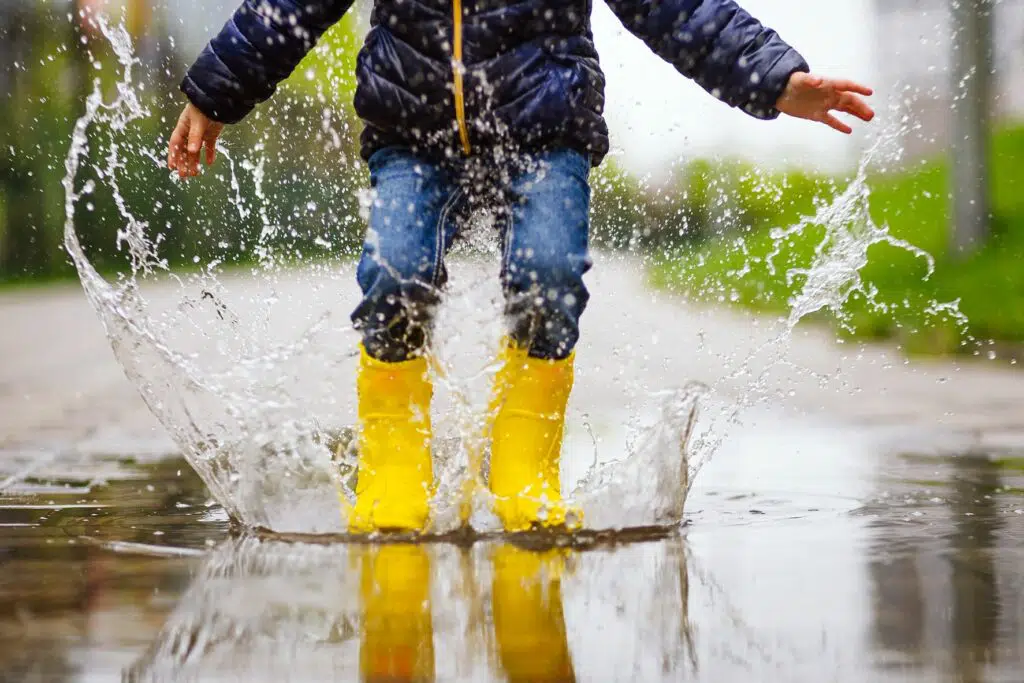5 Mind-Blowing Ways to Help Your Neurodivergent Child Through BC’s
Activities that involve pushing, pulling, or carrying provide proprioceptive input, which has a calming effect on the nervous system...


All parents want their children to thrive. From the minute they’re born, we guide them through a million milestones – and then we send them off to school. Most kids just get it – they breeze through the A, B, C’s, math equations, and general school structure without a backward glance.
But every so often, there’s a child who finds school a challenge and that’s stressful – not only for the child, but also their parents, teachers, and caregivers.
However, with a little help and research, it’s possible to discover the reasons behind the challenges that are weighing the child down. Learning is a complex process and some children need different learning styles in order to succeed. And with a Psychological Educational Assessment, it’s possible to pinpoint exactly what is going on, so that teachers and families can implement strategies and techniques to help the child.
But for many parents, an assessment can sound daunting. So to relieve the pressure and answer some of your questions, BC Parent has spoken to some local psychologists to get the low down on what the process entails.
What exactly is a psychoeducational (psych-ed) assessment?
A psych ed assessment is a psychological test that analyses a child’s mental processes underlying his or her educational performance. Most psychologists agree that this testing is not something to be feared. Instead, it should be seen as empowering, as it helps provide answers and strategies of how to deal with problems their child has been facing.
Dr. Eamonn Gill, a registered psychologist in Vancouver, says, “A psych ed assessment is really just designed to give us an understanding of a young person’s abilities and skills. The assessment can include a broad array of measures to capture information about various components of cognitive ability, memory, attention, behavior, social and emotional functioning, academic functioning and other executive functions.”
At what age do children get tested?
Any child from the age of four to 18 years old can get tested and this can be for a variety of reasons. Dr. Carla Fry, a registered psychologist with the Vancouver Psychology Centre, said, “Young children might be assessed to see if they have learning or developmental disabilities. Older teens might be assessed to help them to determine what they might want to study in university or trade school and whether they need any accommodations, such as extra time or a separate room to complete exams to help them to demonstrate what they have learned.”
How do you know if your child needs a psych-ed assessment?
Experts agree that the initial signs that testing might be necessary are often academic based, especially in the early grades. Early signs include children having problems keeping up with their peers, or perhaps trying really hard at school but still finding it a struggle, particularly regarding reading, writing, or early math skills.
Other things to watch for include difficulty remembering things, difficulty absorbing instructions or responding to instructions, difficulty paying attention, coordination (grasping pencils for example). Additional red flags to pay attention to are difficulty in grasping concepts related to time, or problems staying organized.
What happens during a psych-ed assessment?
Each assessment will be slightly different, depending on the things the child is being tested for.
The assessment is a very interactive process, where kids are presented with visual and hands-on problem-solving tasks and verbally presented questions. The length of the testing will vary, depending on whether a child gets the testing through the school or independently.
In a private practice, the testing for the child is often around six hours. Many psychologists will break that up into two or three testing sessions, so that the young person doesn’t get exhausted or burnt out, or so that their performance doesn’t get negatively affected by having to sit for too long.
Some of the main areas that are looked at during the tests are social functioning, processing emotions, ability to reason, perform mathematical calculations, sustain focus or attention, reading skills, writing skills, how well they’ve developed expression of ideas and facets of memory.
How can it help?
There are numerous ways in which a psych ed assessment can be of value to a child’s development – both at school and at home. Dr. Gill says, “One of the hidden benefits is that sometimes parents can be aware of things that are going wrong, but they’re sometimes not so aware of the hidden strengths that their children have. Going through a psych ed evaluation might make parents aware of significant strengths or abilities that their child has that they didn’t know.”
What happens after the assessment?
Once a child has gone through the assessment process, and the psychologist has gone through the materials and calculated the results, they will also talk to the child’s teacher (with the family’s permission) to get information from the educational environment. The objective is to get information from multiple environments.
Dr. Arthur Burrows, a registered psychologist in Nanaimo said, “We say things like, ‘you need to get your kid tested’, but the tests are only one part of it. Kids can score different results on these tests for a whole bunch of reasons and that’s why it’s not just the test, it’s the history, observing the child, talking to the adults who know the child – that information is very rich and very important and the test scores should be taken into context with everything else.”
Whatever the assessment results show, it is important to discuss the results with the child in a supportive and non-judgmental manner.
How much does it cost?
Psych ed assessments range in price from $2400 – $3000 for a private assessment.
However, if the cost of a private assessment is prohibitive, children can get assessed through the public school system. Often, students will get flagged by the teachers or the learning support team as needing assessment. Parents can also request a meeting with their child’s school-based team to discuss whether their child is a potential candidate to an assessment from the school psychologist.
The downside of testing through the school is that wait times can be lengthy, (depending on the resources available at your school and in your district) and this can mean if a child is in dire need of help, waiting can have an impact on their progress.
If you think your child needs an assessment, make an appointment with your child’s teacher, school counselor or principal to see what options are available.
You can also call a psychologist yourself – most of them are willing to make the time to answer a couple of questions to see if a psych ed assessment is a good choice for your child.
How to find a good psychologist for your child?
Finding the right psychologist is crucial to making the whole process go smoothly.
Dr. Burrows said, “You want to find a psychologist who you feel is approachable and straightforward because it’s really important for parents to be a part of this process. All registered psychologist have to be registered members of the BC College of Psychologists, so make sure you check their credentials and when you’re shopping around, you want them to have specific experience and training doing psych ed assessments.”
The BC Psychological Association offers free access to a referral service listing Registered Psychologists in your area, but another way to find someone suitable is to ask members of your school community for a referral.
Registered Psychologists
North Shore Stress and Anxiety Clinic
Suite 300 – 145 Chadwick Court, North Vancouver
604/985-3939
psychoed.ca
At the NSSAC Psychoeducational Assessment Centre, our team of skilled and experienced psychologists specialize in providing high-quality, evidence-based psychoeducational assessments. We are committed to helping children, teens, and adults better understand their strengths and challenges and reach their potential.
Gill, Cohen & Associates
Suite 704 – 318 Homer Street, Vancouver
604/767-1325
gillcohen.com
Dr. Gill and Dr. Cohen have decades of experience as psychologists working with children and youth. Our mission is to help your child regain a positive relationship with learning and maximize their academic success.
Thaiss Psychological Services
(Dr. Laila Thaiss, R.Psych., CPBC #01583)
209-2186 Oak Bay Ave, Victoria
250/516-6692
thaiss.ca
Dr. Thaiss offers specialized psychological services for children and adolescents. Her assessments help you understand your child’s learning and emotional strengths, as well as their developmental needs. Supports and recommendations are provided to help your child experience success and promote their wellbeing.
Vancouver Psychology Centre
1529 West 6th Ave, Suite #204, Vancouver
604-733-7709
1718 Marine Drive, Suite #1, West Vancouver
604-912-0264
vancouverpsychologycentre.com
The Vancouver Psychology Centre is a team of like-minded Psychologists, Counsellors, Art Therapists and Youth Care Workers that have united to provide evidence-based assessment, consultation, and treatment to individuals and families who seek greater happiness and meaning in their lives.
Dr. Antanina Firer
601 W. Broadway – 301, Vancouver
504/338-5757
threestoryclinic.com
drantaninafirer.com
Dr. Antanina Firer is a Registered Psychologist who specializes in child and adolescent psychology. Dr. Fireer serves Vancouver and the Lower Mainland. She provides comprehensive psychological assessments for children and teenagers who present with cognitive, emotional, and behavioural challenges.
Activities that involve pushing, pulling, or carrying provide proprioceptive input, which has a calming effect on the nervous system...

What is VO2 max? VO2 max is a measurement of the maximum amount of oxygen your body can utilize during intense exercise.

Winter break gets busy fast, but you don't have to attend every event. An overwhelmed child plus more activities rarely leads to joy.
